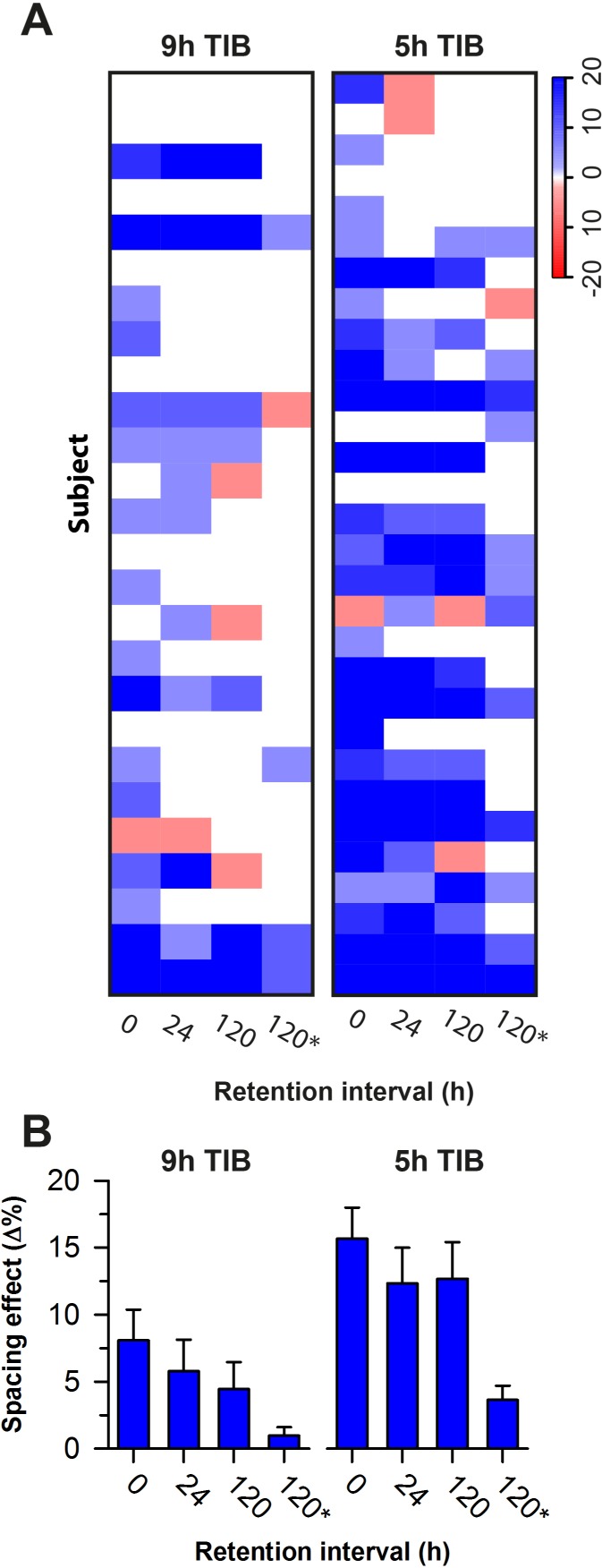Figure 3.

Effects of study spacing on vocabulary learning were greater during sleep restriction. Cued recall performance for Graduate Record Examination (GRE)-type words was examined across different retention intervals for students who were given either 9 h of time in bed (TIB) for sleep each night, or 5 h of TIB. (A) The spacing effect, defined as the difference in test scores for spaced items versus massed items, is shown for each student across different retention intervals. In the heat map, blue indicates better cued recall performance on spaced items, and red indicates higher test scores on massed items. Cued recall performance was assessed immediately after the last study session, and also 24 h and 120 h after all items were shown. This was followed by a review session in which students were shown all word pairs once, after which students were given a final cued recall test (120*h). (B) The magnitude of the spacing effect was greater in students given 5 h of TIB versus 9 h of TIB (Spacing × TIB: LR χ2 = 8.40, P < 0.01; See Table 2). The mean ± SEM is shown. The individual data in Panel A are aligned with group-averaged data in Panel B.
